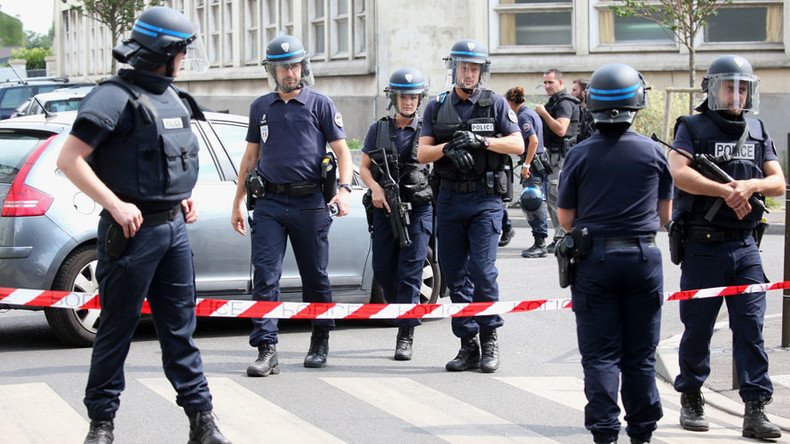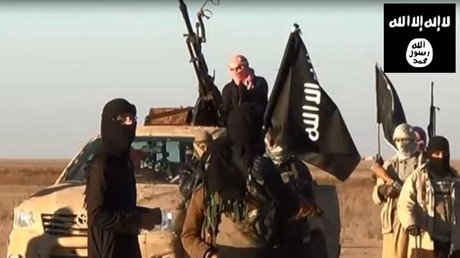‘Terrorists need to be lucky once, intelligence has to be lucky always’

Despite the great deal of work intelligence and security agencies are doing to counter terrorism, luck is also a big factor when it comes to providing the safety of our countries, says Chris Hunter, a retired British Army bomb disposal officer.
A leading EU security official has warned Islamic State could be about to change its style of terror in Europe, possibly involving chemical weapons.
RT: Does ISIS really have the ability to carry out a chemical attack in Europe?
Chris Hunter: Yes, I think first and foremost, what we are seeing is a changing modus operandi. Any terror group, there sole intention is to spread fear and terror to achieve their objectives. And in the theaters in which they operate, they will identify certain tactics, techniques and procedures which are successful at installing that widespread fear. And of course, the use of chemical weapons is one of those. We’ve seen the use of chlorine attacks when they placed explosive charges next to large chlorine containers which send out clouds of choking agent effectively. And we’ve also seen attacks using mustard gas by various insurgent terrorist groups around the world. If you think about the fact ISIS is now starting to lose its land gains, its forces had been depleted by conventional forces. So, what they are doing, they are implementing this strategy first devised by Al-Qaeda called ‘death by a thousand cuts’ trying to basically get people in the West - home-grown lone-wolf type terrorists - to use any sort of means possible, especially those that have been successful via instructions that are given in online publications to effectively make any sort of device, use a crude form of attack and indeed use modified, crude, improvised chemical weapons.
RT: How could the European security forces possibly defend against that threat?
CH: There is a great deal of work being done by the intelligence agencies internationally, not just in Europe itself. And of course, also organizations like Interpol and of course, the monitoring of industrial chemicals, for example, the controls on them, there is a lot of work going on to ensure that there are as many safeguards as they physically can [put] in place…But we’ve seen a number of incidents where terrorists, especially the lone-wolf terrorists basically have been off the radar, they’ve not got previous backgrounds or not enough criminal background or links with other terrorists to warrant persistent surveillance…There was a sort of notorious phrase used by one if the IRA bombers back in the 1980s and he said: “Today you were lucky but remember we only have to be lucky once, you have to be lucky always.” That’s also a big factor when it comes to the security of our countries. You know, there always also going to be the degree of luck, unfortunately.
Americans, Europeans still very worried about terror. US & EU publics say ISIS is top threat https://t.co/GcOEpoT487pic.twitter.com/hAEAPBQTdW
— Richard Wike (@RichardWike) September 11, 2016
RT: The threat of car bombs was also mentioned. How much could that style of attack change things?
CH: There is a number of means of manufacturing car bombs. Effectively, what we’ve seen is in war zones, it is comparatively easy to get hold of military grade explosives and detonators, and of course the knowledge base. When we are talking back in Europe and in the West, those controls are far stricter. It is not as easy to get hold of conventional military explosives and detonators. So, they tend to improvise them manufacturing their own and that’s a very dangerous process for them even in the manufacturing process. They are also not generally as powerful and they are more difficult to initiate. So, there are controls in terms of the chemicals and the constituency of those. Those are monitored. In addition to that there are various detection facilities and pieces of equipment that are emplaced in critical areas and key points around the cities. And if course, there are certain signs and features that competently identify a car bomb. But in addition to that almost every terrorist attack before it takes place is preceded by hostile reconnaissance, virtually every terrorist attack that we’ve seen in Europe in the last ten years. They effectively record a number of potentially targets, they’ve looked at the weapons at their disposal, they’ve look at the capabilities that they require to match those targets and then they decide what target they are actually going to attack. And that’s quite often being followed up with a secondary reconnaissance of the potential target as well. Even during that phase, alert police, alert members of the public reported any sort of absence of the normal or presence of the abnormal, all of those things combined to assist at defeating these incidents. But I stressed the fact that they only have to be lucky once, we have to be lucky always.
The statements, views and opinions expressed in this column are solely those of the author and do not necessarily represent those of RT.














